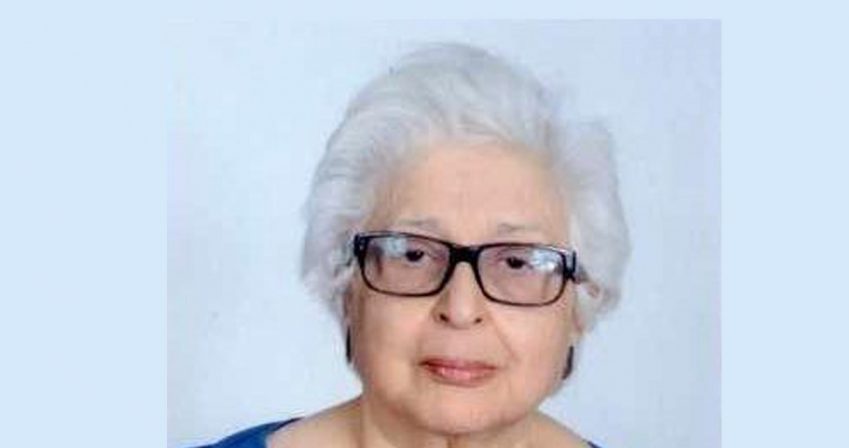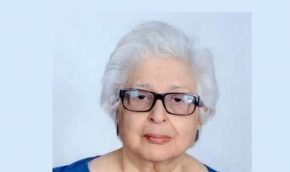Anti-apartheid campaigner who became Speaker of the National Assembly of South Africa
Women in Law
- Introduction
- Timeline
- Joyce Bamford-Addo
- Marion Billson
- Jill Black
- Elizabeth Butler-Sloss
- Sue Carr
- Eugenia Charles
- Lynda Clark
- Freda Corbet
- Coomee Rustom Dantra
- Leeona Dorrian
- Heather Hallett
- Frene Ginwala
- Rosalyn Higgins
- Daw Phar Hmee
- Lim Beng Hong
- Dorothy Knight Dix
- Sara Lawson
- Elizabeth Lane
- Theodora Llewelyn Davies
- Gladys Ramsarran
- Lucy See
- Evelyn Sharp
- Victoria Sharp
- Ingrid Simler
- Teo Soon Kim
- Ivy Williams
- The Significance of the Sex Disqualification (Removal) Act 1919
- Podcasts
Home › Women in Law › Our Women › Frene Ginwala
Dr Frene Noshir Ginwala
(b. 1932)
Admitted 1957, Called 1964
Dr Frene Ginwala was born in Johannesburg to an Indian South African family. Her father Noshir was the director of an oil firm, and she was educated at King’s College’s London, so her upbringing was most likely a relatively wealthy and progressive one. On her application form to The Inner Temple, she gave a home address in Fordsburg, historically a multicultural suburb of Johannesburg with strong Indian, Pakistani and Jewish communities. When Frene Ginwala was 16, though, a new South African government was elected on a promise to make racial division—what became known as apartheid—a matter of official policy. One of the key legislative planks of apartheid was the Group Areas Act 1950, which gave the government the power to decide where different racial groups were permitted to live. Ethnically mixed neighbourhoods like Fordsburg swiftly attracted the disapproval of the new authorities, and shortly after the passing of the Group Areas Act it was declared a “whites-only” suburb. Many Indian families were forcibly relocated to a township on the edge of Johannesburg, though the Ginwalas appear to have avoided deportation at the time of Frene’s application to The Inner Temple.


Dr Frene Ginwala
Frene Ginwala became active in resisting apartheid while still a young woman. She joined the African National Congress (ANC), the main anti-apartheid group in South Africa. She was involved in the establishment of secret escape routes for ANC members following the Sharpeville Massacre of 1960. Ginwala herself went into exile from South Africa after the banning of the ANC in 1960, and established an ANC office in the British territory of Tanganyika (shortly to become the independent nation of Tanzania) along with two leaders of the anti-apartheid movement, Oliver Tambo and Yusuf Dadoo. From here, she continued to help ANC members including Nelson Mandela to travel out of and back into South Africa covertly.
Ginwala remained active in the ANC throughout her legal studies and her Call to the Bar in 1964. Eventually, though, her activity made her persona non grata in Tanzania, and she was deported in the late 1960s. She returned to the UK and began to study for a doctorate in philosophy at Oxford University, and also to continue her political activity by giving lectures and writing articles against apartheid. She returned to Tanzania in 1970, at the invitation of President Julius Nyerere, who lifted her bans and asked her to be the managing editor of the Standard, the country’s newly-nationalised English-language newspaper. She travelled further afield as well, speaking and writing in support of the anti-apartheid struggle and working with UNESCO and the UN to raise awareness of human rights abuses in her homeland. She was a strong supporter of economic sanctions against South Africa, using her legal training to construct powerful arguments in their favour.
The re-legalisation of the ANC and the release of Nelson Mandela in 1990 were made possible by the actions of thousands of people like Dr Ginwala. In 1991, she was finally able to return to South Africa, where she played a significant part in the re-launched ANC Women’s League and the production of a Women’s Charter, which was unveiled in 1994 in an attempt to ensure that sexism, like racism, could be banished from the South African system of government. The ANC Women’s League also succeeded in getting the ANC to adopt a quota system to ensure that at least 30% of its Ministers were women.
In April 1994, Dr Ginwala was elected to the National Assembly (the lower house of the South African parliament) and became its Speaker, a post she held for 10 years. From 2005 to 2009, she was the first Chancellor of the University of KwaZulu Natal; she also continued to be a presence in the ANC, the Women’s League and informally in the UN and UNESCO.